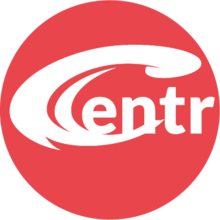Council of European National Top Level Domain Registries

The Council of European National Top-Level Domain Registries (CENTR) is the association of European Internet country code top-level domain registries, such as .de for Germany or .si for Slovenia. CENTR currently counts 53 full and 9 associate members – together, they are responsible for over 80% of all registered domain names worldwide. The objectives of CENTR are to promote and participate in the development of high standards and best practices among ccTLD registries. Full membership is open to organisations, corporate bodies or individuals that operate a country code top level domain registry.
The project that became CENTR was formed in March 1998 and was informally funded by participating registries. In 1999, it was legally established as a not-for-profit company in the UK. Since 2006, CENTR is registered as a non-for-profit organisation based in Brussels, Belgium. CENTR activities are funded by membership fees, and performed by a secretariat based in Brussels.
The organisation has a European focus, but there are no geographical restrictions to membership. In addition to more than forty of the countries in the region, CENTR is very pleased to have as members the country code registries from a number of countries outside of Europe (such as Iran, Japan, New Zealand and Canada). CENTR welcomes the application from all country code managers.
CENTR provides a forum to discuss matters of policy affecting ccTLD registries and acts as a channel of communication to Internet governing bodies and other organisations involved with the Internet. It promotes the interests of ccTLDs and advocates on their behalf.
The rules and registration procedures of ccTLD registries vary considerably and CENTR aims to collect information on, and document the practices of ccTLD registries. It provides a focal point for enquiries on such matters and encourages amongst ccTLDs the provision of better service for users.
CENTR also facilitates collaborative projects on technical managerial and legal issues affecting ccTLDs.